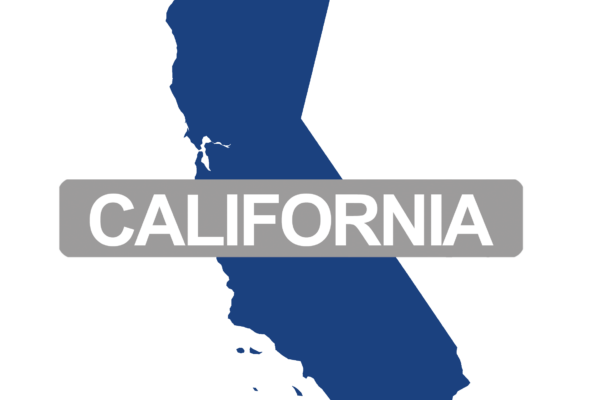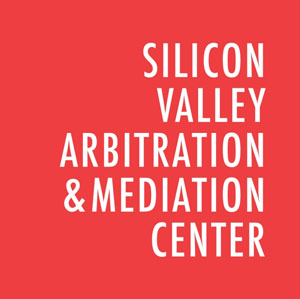 Senate Bill 766, which has passed the California Senate and has had its first reading in the Assembly, and is expected to be signed into law within this year, will confirm the right of foreign lawyers to represent parties in international commercial arbitrations with situs in California. With the enactment of SB 766, California’s economic prominence, sophisticated business climate, and highly developed legal infrastructure should make it an attractive venue for international commercial arbitration. Foreign parties who have historically been reluctant to agree to arbitrate international commercial disputes in California should now be much more amenable to arbitration here. Major companies headquartered here, including Silicon Valley Tech companies, can confidently adopt arbitration clauses naming California as the situs of arbitration of international commercial disputes. In anticipation of its enactment, the arbitration community in California is coming together to make the new law known and otherwise enhance the already excellent infrastructure for international commercial arbitration in the state.
Senate Bill 766, which has passed the California Senate and has had its first reading in the Assembly, and is expected to be signed into law within this year, will confirm the right of foreign lawyers to represent parties in international commercial arbitrations with situs in California. With the enactment of SB 766, California’s economic prominence, sophisticated business climate, and highly developed legal infrastructure should make it an attractive venue for international commercial arbitration. Foreign parties who have historically been reluctant to agree to arbitrate international commercial disputes in California should now be much more amenable to arbitration here. Major companies headquartered here, including Silicon Valley Tech companies, can confidently adopt arbitration clauses naming California as the situs of arbitration of international commercial disputes. In anticipation of its enactment, the arbitration community in California is coming together to make the new law known and otherwise enhance the already excellent infrastructure for international commercial arbitration in the state.
********
Representation in arbitration by persons not admitted as lawyers at the situs of the proceeding has been a vexed question in a number of jurisdictions. In California, the 20-year-old Birbrower case has been widely read to say (though actually it does not hold) that arbitration is the practice of law and therefore limited to qualified California lawyers. Legislation passed in California soon after Birbrower (CCP §1282.4) created a system of ad hoc vice admission for lawyers admitted in other United States jurisdictions, but did not extend to lawyers admitted outside the United States, and, whether by intention or not, did not extend to international commercial arbitration as defined in the California International Arbitration Act (CCP §§1297.11 through 1297.337). This created uncertainty as to whether international arbitration in California was off-limits to outside lawyers, whether from other US jurisdictions or abroad, The number of international arbitrations in California has grown but at a slower pace due to this uncertainty.
 Other jurisdictions, including some of those best known for as venues for international arbitrations such as London and Hong Kong, have not required any professional admission of representatives in arbitration. This was true of New York as well (Williamson v. John D. Quinn Const. Corp, (S.D.N.Y. 1982); see also Committee Report, Labor Arbitration and the Unauthorized Practice of Law (1975) and Committee Report, Recommendation and Report on the Right of Non-New York Lawyers to Represent Parties in International and Interstate Arbitration Conducted in New York (1991), although subsequently New York instituted a rule of court which indicates that New York courts think otherwise. In Singapore and Japan, after restrictions were imposed on representation in arbitration by lawyers not admitted locally, legislation was enacted allowing such representation. Both New York and Florida have rules allowing representation in international arbitration in the jurisdiction by lawyers admitted elsewhere, subject to certain conditions.
Other jurisdictions, including some of those best known for as venues for international arbitrations such as London and Hong Kong, have not required any professional admission of representatives in arbitration. This was true of New York as well (Williamson v. John D. Quinn Const. Corp, (S.D.N.Y. 1982); see also Committee Report, Labor Arbitration and the Unauthorized Practice of Law (1975) and Committee Report, Recommendation and Report on the Right of Non-New York Lawyers to Represent Parties in International and Interstate Arbitration Conducted in New York (1991), although subsequently New York instituted a rule of court which indicates that New York courts think otherwise. In Singapore and Japan, after restrictions were imposed on representation in arbitration by lawyers not admitted locally, legislation was enacted allowing such representation. Both New York and Florida have rules allowing representation in international arbitration in the jurisdiction by lawyers admitted elsewhere, subject to certain conditions.
For years that California has lagged behind both New York and Florida in numbers of international arbitration cases with situs in the state. The inability of overseas lawyers to represent parties is probably an important factor in this disparity. Recognizing the issue, California Chief Justice Tani G. Cantil-Sakauye formed the “Supreme Court International Commercial Arbitration Working Group” in early 2017, and in April 2017 the Working Group made its report and recommendations, in particular recommending an amendment to the California International Arbitration Act to add provision for out-of-state and foreign lawyers to act as representatives in international commercial arbitration in California. SB 766, introduced by Senator Monning, is the result.
The legislation adopts the approach of the American Bar Association’s 2002 “Model Rule for Temporary Practice by Foreign Lawyers.” Out of state US lawyers and foreign lawyers in good standing in their home jurisdiction are authorized to represent parties in international commercial arbitrations held in California provided that one of the following conditions is met (1) a California lawyer actively participates; or (2) the services arise out of or are reasonably related to the lawyer’s practice in a jurisdiction in which the lawyer is qualified; or (3) the client resides in or has an office in the jurisdiction in which the lawyer is qualified; or (4) the services arise out of or are reasonably related to a matter that has a substantial connection to a jurisdiction in which the lawyer is qualified; or (5) the dispute is governed primarily by international law or the law of a foreign or out-of-state jurisdiction. The out-of-jurisdiction lawyer will be subject to the jurisdiction of the California courts and disciplinary authority under the California Rules of Professional Conduct and the laws governing the conduct of attorneys to the same extent as a member of the State Bar of California, and the State Bar of California may report complaints and evidence of disciplinary violations against a lawyer practicing under the law to the disciplinary authority of any jurisdiction in which the attorney is qualified.
The legislation will resolve the uncertainty regarding out-of-jurisdiction lawyers in California and should give technology companies and other companies doing international business an improved opportunity for resolving disputes in California. The text of SB 766 may be found at https://leginfo.legislature.ca.gov/faces/billTextClient.xhtml?bill_id=201720180SB766
SVAMC Member Dick Eastman is a lawyer and arbitrator in sole practice in San Francisco. He can be reached at richard.eastman@eastmanlaw-tokyo.com.
